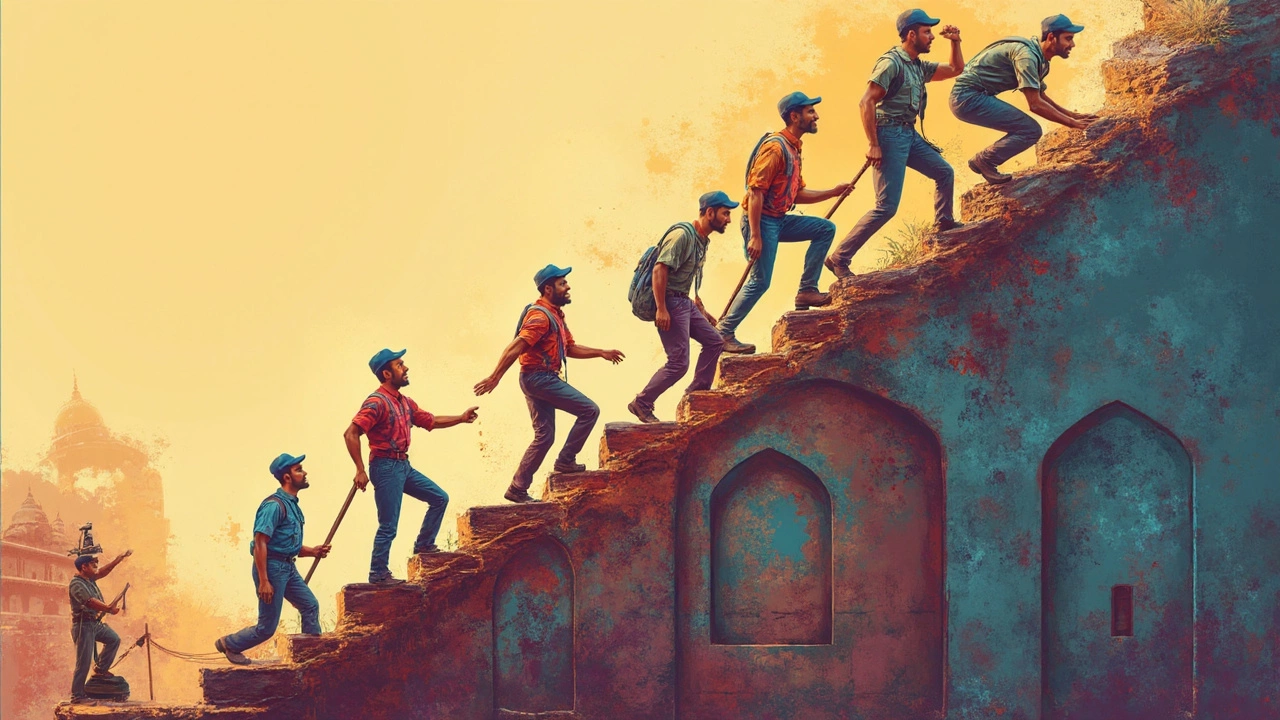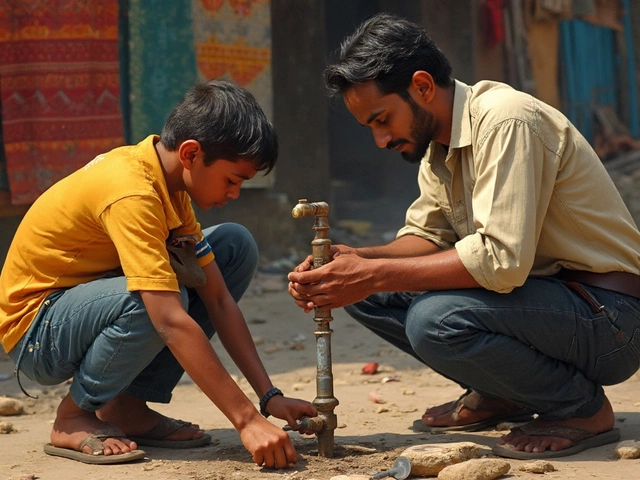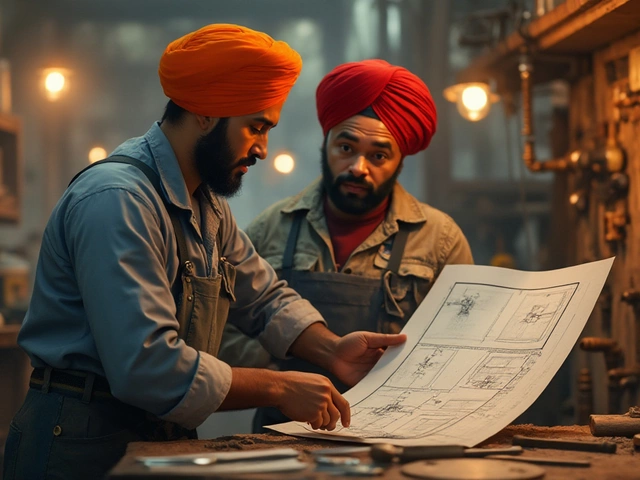So, you're thinking about becoming a plumber, huh? Not just a DIY fix-it-for-fun superhero at home but a real-deal, certified pro. Quite the adventure! The first step is understanding what 'grade' or level you need to aim for, which isn't as overwhelming as it first sounds. Just like in school, plumbing has its own grading system, helping to track your progress as you develop your skills.
Getting into plumbing isn’t just about wielding a wrench and looking cool in overalls. There are different grades, each marking a level of skill and responsibility. You start with the basics and slowly move up the ranks—kind of like leveling up in a video game but with pipes and fixtures instead of dragons and swords.
In most places, you'll kick off as a novice, learning the ropes (or rather, the pipes). This means getting your hands dirty (literally!) with the groundwork of plumbing. You'll learn about different materials, basic installations, and the tricks of the trade that ensure water runs smoothly and leaks are a thing of the past.
- Understanding Plumbing Grades
- Essential Skills at Each Level
- Training and Certification
- Real-world Applications
Understanding Plumbing Grades
Alright, let's get into the nitty-gritty of plumbing grades. In the world of plumbing, just like karate has belts and academia has degrees, you’ve got grades. Each grade represents a different level of expertise and responsibility. Think of it as your way of proving you’re not just playing around with pipes.
The journey starts at the beginner level, dubbed the 'Novice' or 'Apprentice'. Here, you're essentially in learning mode, soaking up as much knowledge as possible. Training typically involves a mix of classroom instruction and hands-on work experience. This is where you master essential skills like reading blueprints, understanding plumbing codes, and learning about safety protocols.
Once you're comfortable and ready to move up, you hit the 'Journeyman' status. This level signifies that you’re no longer just a sidekick; you can handle most plumbing jobs with some independence. Journeymen have a thorough understanding of plumber training basics and can even begin taking on some supervisory roles.
Then there's the top dog level—the 'Master Plumber'. Reaching this grade is like earning a black belt. You've got years of experience under your belt, can tackle any plumbing conundrum, and are often involved in training apprentices. Master Plumbers are the authority, often supervising large projects or running their own plumbing firms.
Some stats for you: In the U.S., reaching Journeyman status usually takes a minimum of 4-5 years of experience plus passing a state exam. For a Master Plumber, you’re looking at additional years of experience and understandable exams (not to mention some states require a background check).
At each grade, there's a chance to not just work but really set yourself apart. And no, there's no grading curve—just the satisfaction of knowing you’ve earned your stripes through hard work and dedication to the craft.
Essential Skills at Each Level
Jumping into the world of plumbing, you start from the ground up, mastering vital skills at each level. This isn’t just about learning to fix a leaky faucet; it’s about tackling a wide range of issues that require specific know-how. Here’s the scoop on what skills you pick up as you progress through the plumber training.
Entry-Level Skills: As a beginner, you'll focus on basic but crucial skills. You learn to identify pipes and fittings, understand water systems, and manage simple installations. It’s like building your plumbing vocabulary and starting to grasp how things fit together. You’ll also discover the magic of tool handling—making friends with wrenches and learning to make precise measurements.
Intermediate Skills: With some experience under your belt, it's time for the next level. You get to tackle more complex systems including central heating or larger household projects. This is where plumbing courses delve into diagnosing common issues and effective troubleshooting. You start understanding blueprints and become adept at reading plans, which is super important for big projects.
| Skill Level | Common Tasks |
|---|---|
| Entry-Level | Basic installations, Identifying tools, Simple repairs |
| Intermediate | Complex systems, Troubleshooting, Reading blueprints |
| Advanced | Regulatory compliance, System design, Project leadership |
Advanced Skills: As you become more seasoned, you’re expected to take on bigger challenges. This level involves understanding regulatory compliance and getting to grips with design elements. An advanced plumber might lead projects, taking charge of new installations from scratch. Here, you’re aiming for plumber certification that can open doors to supervisory roles or specialized areas like eco-friendly plumbing solutions.
The more you learn, the more you can handle and the more independence you gain. With each level, you’re building not just skills but confidence to take on plumbing challenges head-on. It’s about evolving from someone who fixes pipes to someone who designs systems and leads projects.

Training and Certification
Diving into the world of plumbing sees entry through structured training programs. The journey kicks off with enrolling in a plumbing course, offered by trade schools or community colleges. These courses typically combine classroom theory with hands-on workshops. Expect to dive deep into plumbing basics like pipe fitting, tool handling, and safety protocols.
Now, why is certification a big deal? It's like your golden ticket in this field. Certification not only reinforces your credibility but also opens doors to better job opportunities and higher pay. In most places, you're looking at a few years of monitored practice and successful passing of assessment exams before you can call yourself a certified plumber.
"Plumbing certifications elevate the professional standards, ensuring that practitioners meet a certain benchmark, which is critical for public safety and integrity," says the National Association of Plumbing Industry.
During training, as you gear up for your certification, remember these steps:
- Enroll in a recognized plumbing certification program: Do your research, choose a program with a good track record.
- Get your hands on real-world experience: Whether through apprenticeships or internships, it's vital to get hands-on practice.
- Study the materials thoroughly: Make sure you understand both the theory and practical applications.
- Pass the certification exam: This usually includes both written and practical tests.
What makes plumbing courses and certification appealing is their adaptability to changing technology. With eco-friendly solutions becoming more popular, courses now delve into innovations like solar heating systems and water-efficient appliances. The need for certified plumbers is predicted to keep rising, as houses and businesses look to upgrade their systems for better efficiency and sustainability.
Real-world Applications
Alright, let's get into what really matters—putting all those plumbing skills to work in the real world. Whether you're troubleshooting a leaky faucet or installing a brand-new water heating system, the skills you pick up during plumber training apply directly to everyday situations.
The beauty of plumbing is that it's in demand everywhere. Plumber training equips you to deal with residential jobs, like unclogging drains or fixing that dribbly shower head. But wait, there’s more! With a bit more experience, you can dive into commercial plumbing. Imagine working on the plumbing system for a new office building or ensuring the pipes in a skyscraper are running smoothly. That's where you start seeing the true impact of your skills.
Take this into account: about 90% of homes experience plumbing issues annually. This means the need for skilled plumbers is nearly constant. There's comfort in knowing that whatever happens, there will always be faucets to be fixed or pipes to be installed. Plus, with green technology becoming increasingly popular, having the know-how to install environmentally friendly systems—like high-efficiency toilets or low-flow showerheads—makes you an asset.
And let's not forget emergencies. You're the hero who comes in when a pipe bursts in the middle of a cold night or when a kitchen sink won’t drain right before a big holiday dinner. Your training helps you stay calm and effective in these high-stress situations.
What’s really great about plumbing is that it’s a mix—half hands-on skill, half puzzle-solving. Every job is unique. You might be under a sink one day and analyzing water pressure the next. Keeping up with certifications and learning the latest in plumbing tech are key to advancing in this field.
For those interested in broadening their career, moving from basic plumbing courses to more advanced roles like a plumbing manager or even starting your own business is possible. Upgrade your skills, get the necessary plumber certification, and there you have it—a career path with endless possibilities across various sectors.




